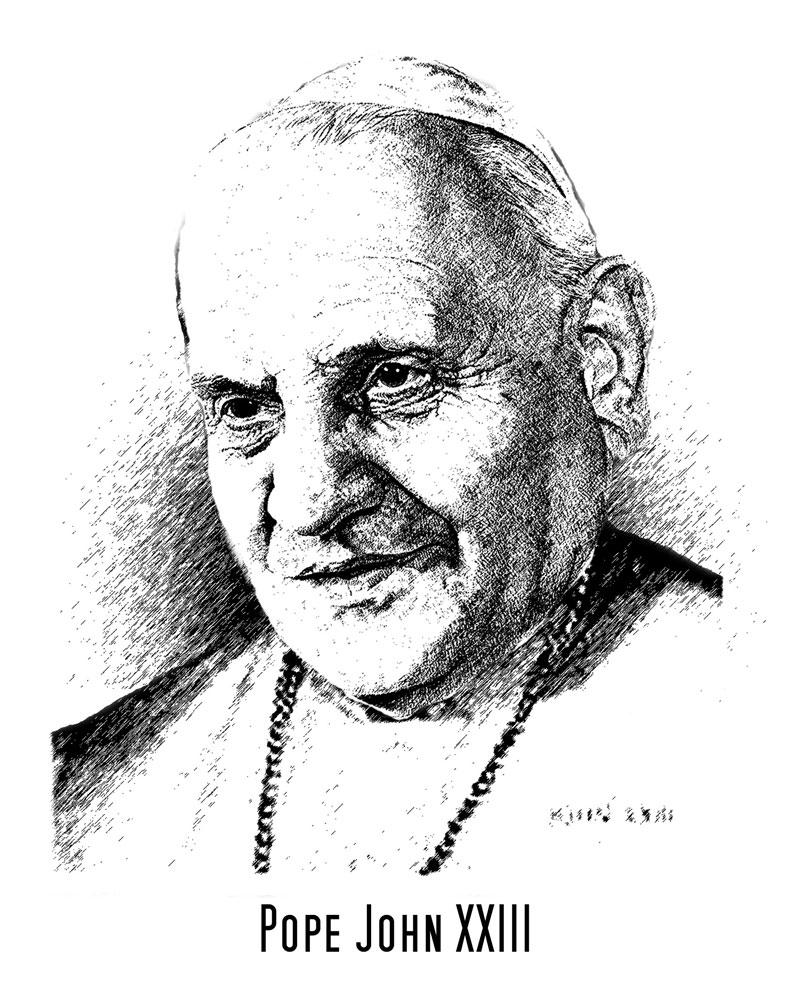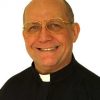This is the first of a four-part series reflecting on the significance of the Second Vatican Council.
Aggiornamento, the Italian word that means “bringing up to date,” expresses the multifaceted agenda for Church renewal undertaken at the Second Vatican Council (1962-1965), initiated by Pope John XXIII. He is remembered for his pivotal role in Vatican II, and his annual feast day is October 11, commemorating his opening of the Council on October 11, 1962.
The fourth of 13 children of peasant farmers, Angelo Giuseppe Roncalli was born in the village of Sotto il Monte in Northern Italy in 1881. He entered the seminary as a young boy and at the tender age of 15 began writing his spiritual diary, published as Journal of a Soul after his death. His aim in life was to be a saint — and he made it!
The young Father Roncalli began the varied assignments which would later serve him well during his pontificate. He served as the bishop’s secretary and taught in the seminary. He was designated a military chaplain during World War I, and then worked in Rome at Propaganda Fide. As a bishop, he was papal representative in Bulgaria, Turkey, and Greece, served as apostolic nuncio to France, and became cardinal-patriarch of Venice.
Before and during the dark days of World War II, Bishop Roncalli profoundly felt the tragic plight of the Jewish people. He initiated working bonds with several Jewish and non-Jewish individuals and organizations to protect Jews from being handed over to the Nazis. In one of many concrete examples, from 1938 to 1939 he helped organize the transport of 10,000 Jewish children to safety. After World War II, Bishop Roncalli continued his active support of the Jewish people and promoted establishing the state of Israel.
Beginning his pontificate at age 77 on October 28, 1958, Angelo Roncalli brought a whole new pastoral and personal style to the papacy. Over the years of his short pontificate (1958-1963) John XXIII became a beloved figure worldwide, popularly known as “Good Pope John.” On the 50th anniversary of Pope John’s death, Pope Francis noted that John XXIII’s life is a lesson in how obedience and trust in God lead to interior peace.
Pope Francis said: “The whole world recognized Pope John as a pastor and father, a pastor because he was a father. … It is so beautiful to find a priest, a good priest, filled with goodness.” He was “an effective weaver of relationships and a solid champion of unity, both in the ecclesiastical community and outside it.” He was always “open to dialogue with the Christians of other churches, with representatives of the Jewish and Muslim worlds and with many other people of good will.”
Indeed, the world loved Pope John XXIII and his cheerful, affectionate nature. He was an optimist, a true “pilgrim of hope,” and communicated this spirit to the Church — particularly through the Second Vatican Council. In his spiritual diary he noted: “I have never met a pessimist who accomplished any good.” He had retained his good humor even during very difficult assignments, choosing to seize the moment and emphasize the potential good to be accomplished.

Good Pope John — Pope John XXIII — as drawn by Jesuit Father Henry C. Ponce, who was at one time a student of this article’s author, Maryknoll Father James H. Kroeger
His joviality and humor became legendary. Two examples suffice. One day he overheard some Italian women speaking of his appearance, saying that he was old, obese, and homely. Pope John turned and benignly observed: “You must remember that being pope is not exactly a beauty contest.”
A diplomat newly accredited to the Holy See asked the pope how many people worked at the Vatican. “Oh, no more than half of them!” replied John XXIII, winking an eye.
John XXIII’s outlook is, in fact, a spirituality that he communicated to the world. He took the call to holiness seriously throughout his entire life. His profound trust was evident in his simplicity, patience, gentleness and affability, qualities manifested in his varied writings.
Yet, John XXIII could be very forceful in asserting his conviction that the Christian faith should result in deep, joyful hope. In his opening speech to the Second Vatican Council, he said: “We feel we must disagree with those prophets of gloom who are always forecasting disaster, as though the end of the world were at hand” (quoted by Pope Francis, Evangelii Gaudium 84). He believed that divine providence was renewing humanity through a perceptive reading of the “signs of the times.”
Some insights from his “Daily Decalogue of Pope John XXIII” are:
• Only for today, I will be happy in the certainty that I was created to be happy, not only in the other world but also in this one.
• Only for today, I will do one good deed and not tell anyone about it.
• Only for today, I will have no fears. In particular, I will not be afraid to enjoy what is beautiful and to believe in goodness.
We marvel at Saint John XXIII’s wisdom and seek to put it into practice — each and every day, transforming us all into a truly joyful community of Jesus’ missionary disciples!
Maryknoll Father James H. Kroeger served in mission in Asia for over five decades. He is the author of Walking with Pope Francis: The Official Documents in Everyday Language (Orbis Books – 2023) and A Joyful Journey with Pope Francis (Faith Alive Books – 2024)
Featured Image: Pope John XXIII leads the opening session of the Second Vatican Council in St. Peter’s Basilica on Oct. 11, 1962. (CNS/L’Osservatore Romano/Vatican City)

